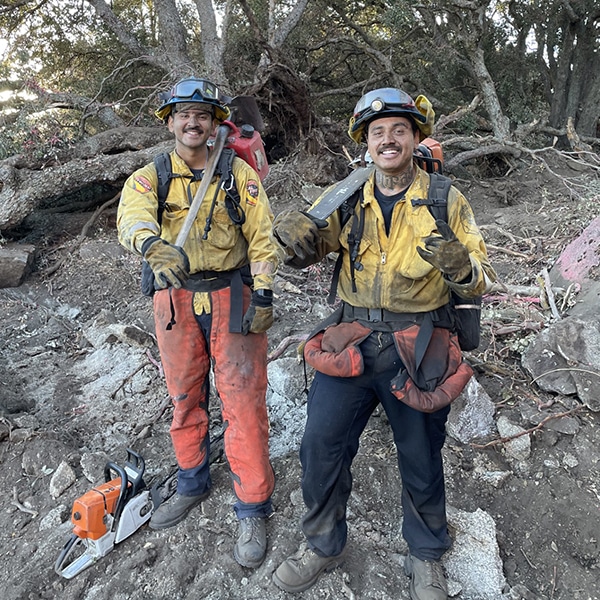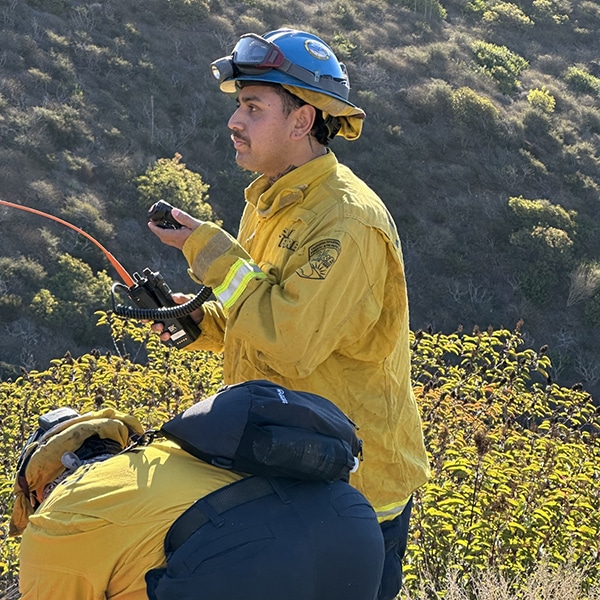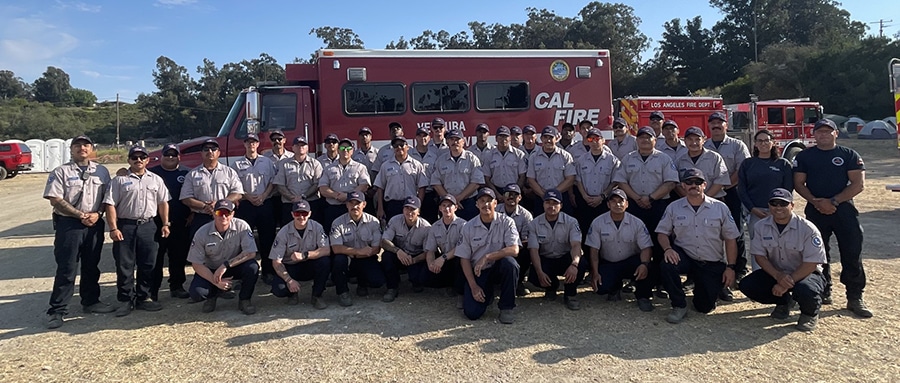
Nearly 1,000 incarcerated men and women joined the frontlines in a battle against record-breaking wildfires burning across southern California in January, including one individual released to parole supervision who had attended GEO Reentry’s Day Reporting Program in Pomona, Calif.
Jose A. had been incarcerated for almost two years within a California Department of Corrections and Rehabilitation prison, and during that time he was introduced to a program where inmates could get involved in fire camp, a volunteer program led by the California Department of Corrections and Rehabilitation. CDCR, in cooperation with the California Department of Forestry and Fire Protection (Cal Fire) and the Los Angeles County Fire Department, jointly operates 35 conservation camps, commonly known as fire camps, located in 25 counties across California. CDCR employees oversee the fire camps, which are all minimum-security facilities.
When Jose was referred to the Pomona Day Reporting Center for cognitive behavioral treatment classes, counseling, and ongoing reporting to the center, he continued the firefighting training he had started in prison. He says he appreciates the structure of the DRC program and the ongoing, positive encouragement he received from the GEO Reentry staff upon reentry to the community. “The GEO Reentry program was wonderful,” he says. “They were non-judgmental and supportive of the positive track I was on.”

Jose earned early release due to his training and involvement in the fire camp program. In addition, he was singled out by his fire camp captain for a referral to another, more advanced firefighting program called the Ventura Training Center. There, he has received additional certifications that allow him to be involved in both wildland and complex urban fire settings.
He and his crew from VTC were recently deployed to the fires of Los Angeles as the fires raged in the city. “They held us back at first, thinking we may be needed in Ventura County, but then they realized how bad it was, and they deployed us to work on clearing brush and other possible fuel around homes as the fire advanced. We were able to save many homes in doing this,” he said.
In the field, justice-involved firefighters can be seen in prison-orange jumpsuits embedded alongside members of the Cal Fire units. Individuals convicted of crimes categorized as “serious” or “violent” felonies are not eligible to participate. Camp participants support state, local and federal government agencies as they respond to all types of emergencies such as fires, floods, and other natural or manmade disasters. Crews also maintain parks and assist with sand bagging during flood fighting operations and reforestation.
CDCR suggests the program paves the way for job opportunities and benefits after release, including advanced training and criminal record expungement, something Jose is currently working on with legal support. That has panned out for Jose, as he is now in line for long-term employment with Cal Fire, one of the preeminent firefighting organizations in the nation. “This is what I’m meant to do,” he said. “I’ve made mistakes in my life, but it feels good to have a purpose, be appreciated, and now give back to the community.”

